Greg LeMond: Miracles in cycling still don't exist
American talks about Armstrong, mechanical doping and marginal gains in L'Equipe interview

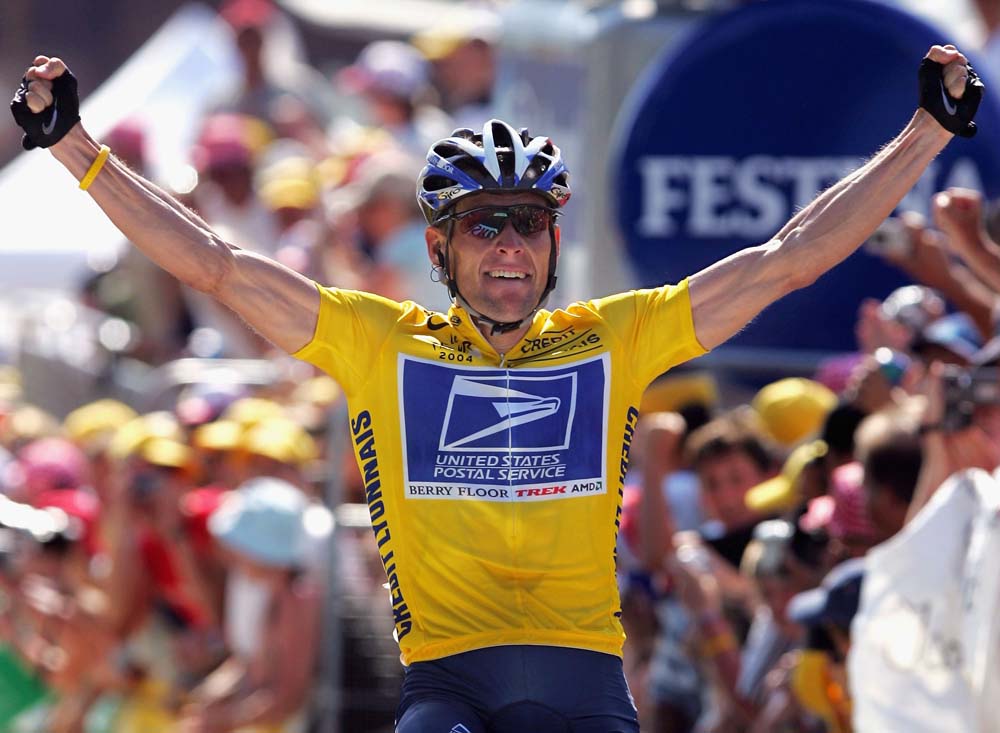
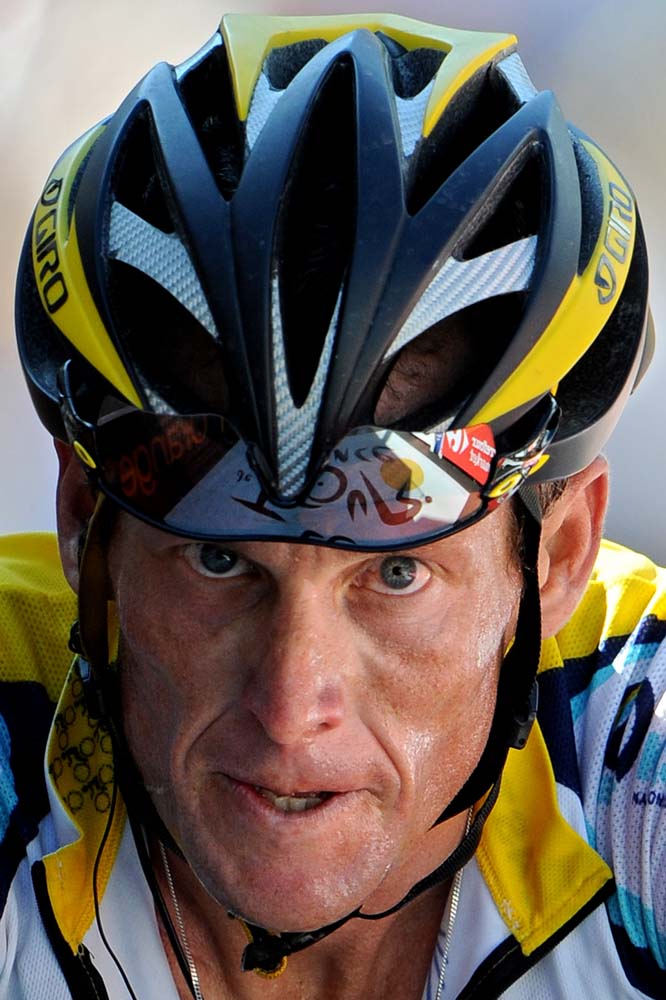
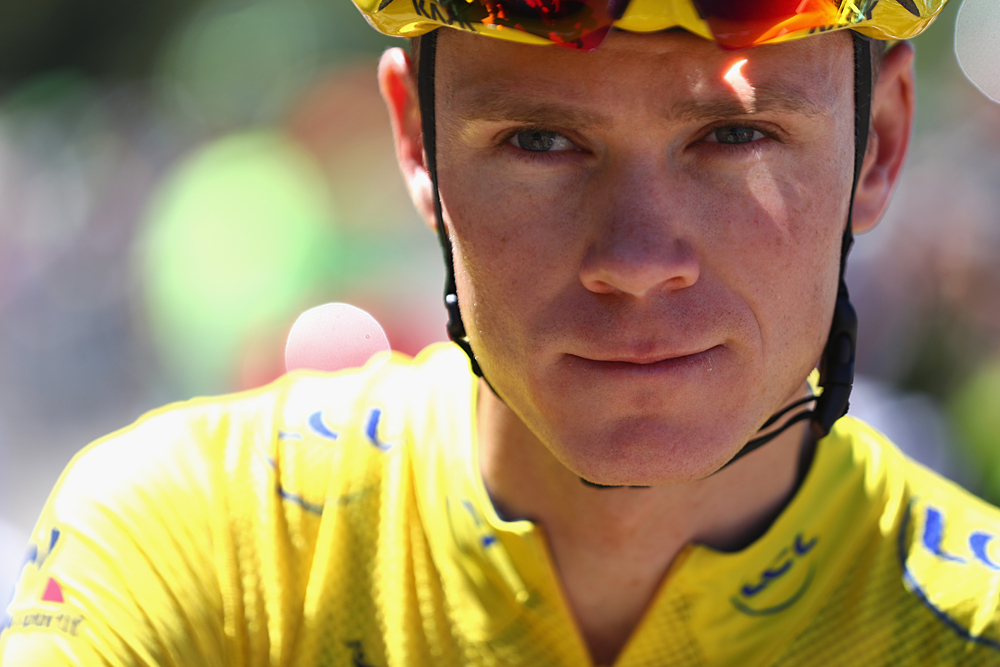
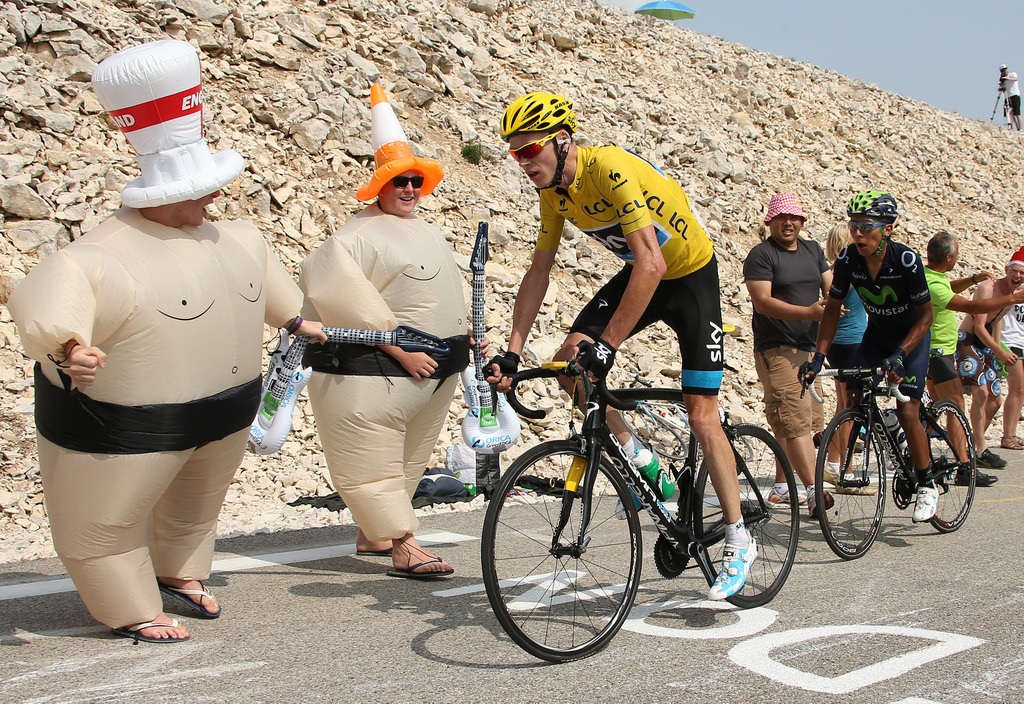
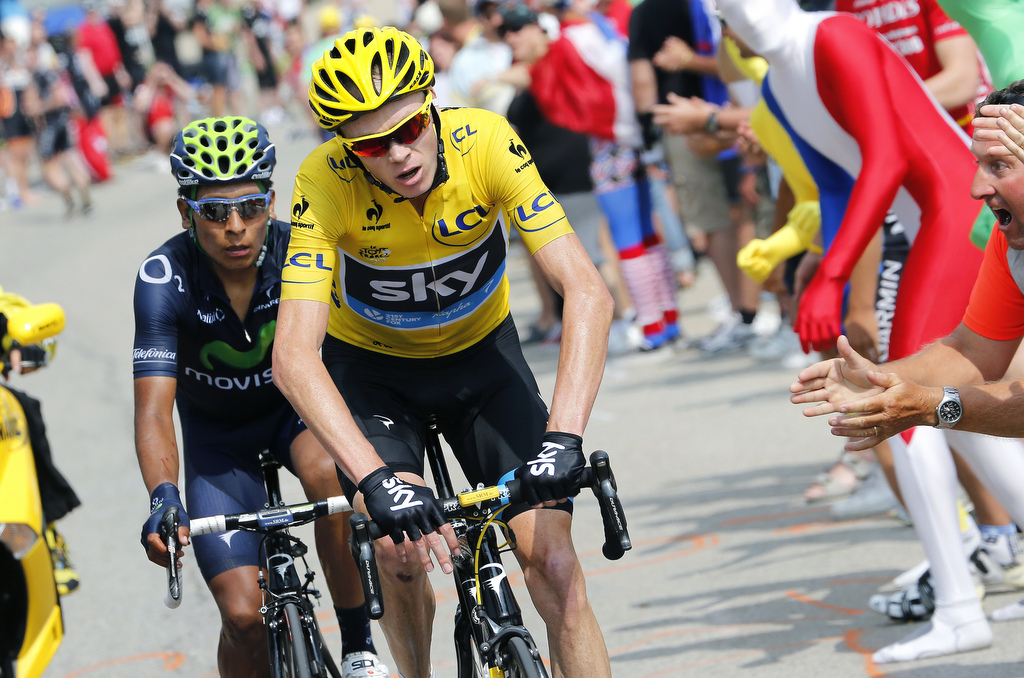
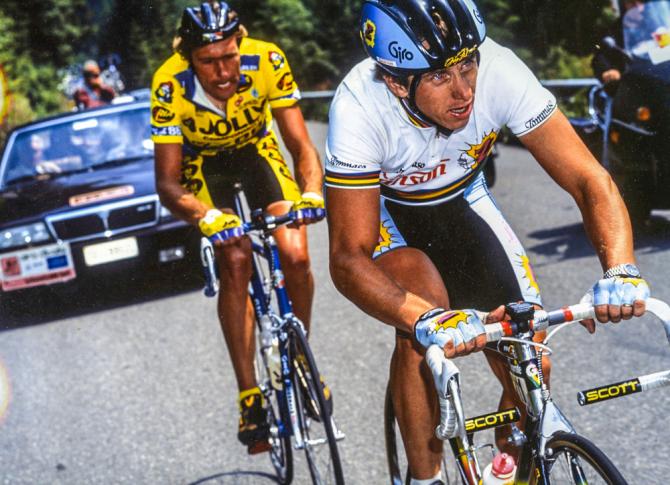
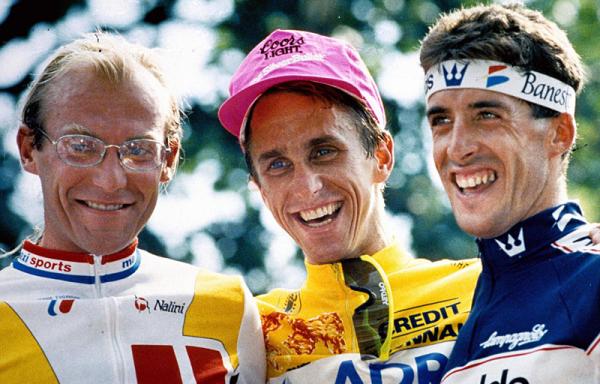
In an often hard hitting but informed interview with the L'Équipe newspaper, for Tour de France winner Greg LeMond has called on the UCI to do more in the fight against mechanical doping, raised questions about Lance Armstrong’s power output at the Tour, and dismissed Team Sky's theory of marginal gains as 'bollocks'.
Now the only American winner of the Tour de France after Lance Armstrong's lifetime ban for doping, LeMond is back at the Tour de France and is again sharing his analysis and experience with Eurosport television. He spent the Armstrong years almost ostracised from the sport and rarely visited the Tour de France but is happy to be back.
"Armstrong managed to ruin my reputation in the US, I thought that was the case around the world, and I couldn't imagine the very warm welcome I'd receive here in France," LeMond told L'Équipe feature writer Philippe Brunel in the two-page interview.
LeMond denies that he is obsessed with Armstrong but raises further questions about the disgraced Texan and how he managed to produce so much power on the bike and dominate the Tour de France. Although Armstrong has admitted to doping during his career, he has never indicated that he used any other means to win the Tour de France.
"If I have this fascination on Armstrong, it was because he was abusing people, he threatened them, and I like neither cynicism nor the abuse of power. I've always been like that, I've always defended the poor. I have never bought or sold a race. I wanted people to know that," L'Équipe report LeMond as saying.
LeMond's position in the sport and his friendships within the peloton, combined with an understanding of sports science, gave him inside information that helped him understand, often before others, what Armstrong was really like and what lengths he would go to so he could win.
"A former teammate of mine had heard, shortly before the Tour, that he was sure to win because he had an 'undetectable thing' but I took that with a smile because there were so many rumours and suspicion around him. Then in April 2001, at a conference I was present at, his former physician Ed Coyle revealed Armstrong's data; his thoracic capacity - 5.6 litres of oxygen, and especially his VO2 max. To me that was evidence that he had cheated.
Get The Leadout Newsletter
The latest race content, interviews, features, reviews and expert buying guides, direct to your inbox!
"When I raced, I had a VO2 max of 93, and I never developed more than 400 watts. Armstrong’s VO2 max, which Ed Coyle mistakenly revealed, was no more than 78. So, considering his weight - 73 kg, he could never produce 500 watts to ride up the Madonna as he said, or 475 watts on the climb of L'Alpe-d'Huez. With his VO2 max, he couldn't exceed 375 watts. To increase his performance by 30%, he had to dope. But did he achieve his performance only with doping? What doping did he use that others didn't? All I know is that there are 50-70 watts missing, which we don’t know the origin of. There is something that I still do not understand."
Investigating and fighting mechanical doping
Last year during the Giro d'Italia, LeMond told Cyclingnews that the UCI needed to use thermal cameras to detect and deter possible mechanical fraud in the sport. In the interview with L'Équipe, LeMond confirms that he has tried to help in the fight against mechanical doping by informing the UCI. He welcomed the introduction of hidden thermal cameras by the French Sports Ministry at this year’s Tour de France.
"If properly conducted, if they control the frames and also the wheels, it deters potential cheats. It can mean we'll have a true Tour winner in Paris, finally a credible yellow jersey" LeMond said.
"I know a lot about the issue. In 1992, I was one of the first to use an SRM. I learned from (directeur sportif and coach) Cyrille Guimard, Paul Köchli. I still read stuff. We can learn a lot about an athlete by calculating their watts and if you know his VO2 max - which can be manipulated by doping with EPO or blood transfusions."
"There are a lot of rumours, so we must remain cautious. There have been many stories and I was skeptical but soon after, in 2013, I met Stefano Varjas. He made me try a motorized bicycle in Paris. Then I saw him at the Hungarian Grand Prix, with Total engineers, who confirmed that Varjas was brilliant. They also told me they could hide everything, isolating the engine. Varjas also spoke about wheels and that made me think about the problem again."
"The day (I tested the bike in Paris), I wasn't fit, I had a bad back and I had to remove a corset. Stefano lent me some shoes, the saddle was too low, I was in jeans, but then at a red light, I burnt off some motorcycles! Some American tourists saw me go me faster than 60 km/h amongst the buses. In front of Les Invalides, I forgot to turn it off and I almost fell. I had proof that it existed, that it was possible; it made me want to vomit. Fifty watts or more. On a climb that means minutes if not more…."
When Brunel suggests that Varjas has claimed the motors have existed since 1998, LeMond replies: "At first, when they had a very low autonomy of two or three minutes you could only use them for an instant and be devilishly dragged long. Now, could someone use them in the Tour? Why not? That could explain lots of things."
If we love cycling, we must defend it
LeMond confirmed that he shared his concerns about mechanical doping with Brian Cookson, as the former head of British Cycling was running for the role of UCI President. Reports of motors and mechanical doping had already surfaced but the UCI had all but given up on using an expensive x-ray technique to try to find them. The UCI has always defended its tablet device but has also began to use a simple thermal camera during the Tour de France and carry out x-rays of bikes after key stages of the race.
"I told him: 'I tried it, it exists, it's a problem,' and he looked surprised. Then I emailed him too and I explained that it was necessary to use thermal cameras to detect the motors," LeMond told L'Équipe.
"If we love cycling, we must defend it. There is nothing worse than doubt. I have to know who is the best, to believe in what I see and I must speak out."
To perform better checks for mechanical doping, LeMond believes that the technology exists to properly fight mechanical doping, even if it costly.
"We could fight it even better with large arches, which cost $ 1.5 million, that's not much in the whole economy of the Tour. It took me two hours to find it on the Internet, so why doesn't the UCI do it?"
Team Sky marginal gains! What bollocks!
In a final question, LeMond was asked about Chris Froome and his high-cadence attack on the slopes of Mont Ventoux in 2013. The attack sparked huge debate last year because of allegations concerning Froome's data during his ride. His speed, power, cadence and heart rate were matched to video footage of the climb and showed that the Team Sky rider's heart rate only changed minimally when he attacked and dropped his rivals.
At the time LeMond preferred not to make a judgement off of one set of data and called for a longitudinal study of power data combined with the biological passport to measure performance. Froome underwent physiological testing last August and published some of his data.
So far in this year's Tour de France, Froome has not pulled off the same dominant attacks, opting to test his rivals on the descents and in cross winds. He has gained the biggest chunk of his overall lead in the individual time trial.
LeMond expressed doubts about Froome's high-cadence attacking style in the L'Équipe interview.
"He turned his legs at a high speed, but it's not effective and contrary to all physiological laws," LeMond is reported as saying, also dismissing the idea of Team Sky's marginal gains philosophy.
"You can't get a gap on small gears," LeMond argued.
"The great physiologist Frederick Portoleau showed that when Froome accelerates hard, his heart only shows small variations. This is troubling. What bothers me is hearing some technicians say it's science fiction, which is a kind of misinformation. Others make us believe they are ahead of the best scientists, the famous Team Sky marginal gains! What bollocks! There are no new methodologies. That is wrong. In this area too, miracles do not exist."